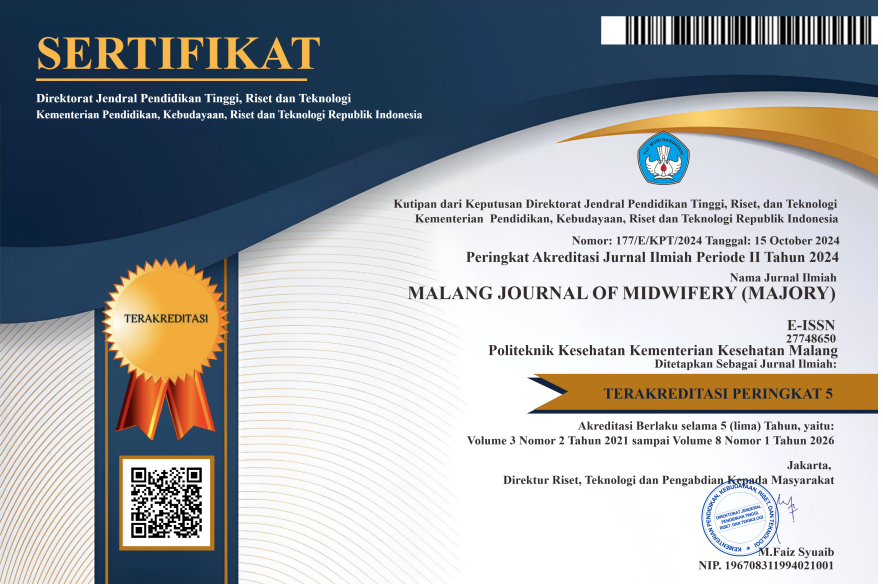Peningkatan Tingkat Pengetahuan dan Sikap Remaja Tentang Kesehatan Reproduksi dengan Peer Education
DOI:
https://doi.org/10.31290/majory.v1i2.2201Abstract
The high problem of adolescent reproductive health is caused by the lack of basic information about reproductive health in adolescents, so adolescents tend to engage in risky behavior. The study was conducted to analyze the effect of peer education on the level of knowledge and attitudes of adolescents about reproductive health. The design of this study was a quasi-experimental design with pretest-posttest group design. Data collection using interview and observation methods. The study population was all groups of adolescents in Malang City and Regency, with a sample of adolescents who were in Malang City (Kedung Kandang Health Center Area) and Malang District (Jabung Health Center Area). The sample size was 85 teenagers selected by simple random sampling. Data collection using a questionnaire. Data were processed descriptively and analyzed using a statistical t-test. The results showed that there were significant differences in pre-test and post-test in the level of adolescent knowledge (p value <0.001) and adolescent attitudes (p value <0.001). Most adolescents in the intervention group (providing counseling by peer educators) did not support free sex and early marriage (97.3%). Health education by peer educators can remind adolescents' knowledge and attitudes about reproductive health, so that it can be developed for promotive efforts for adolescents.
Keywords: Peer Education, Reproductive Health, Adolescent Knowledge, Adolescent Attitudes








